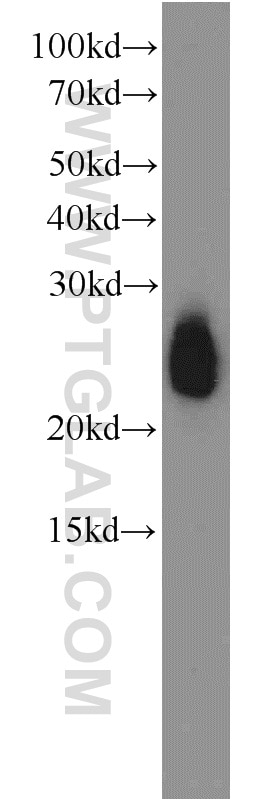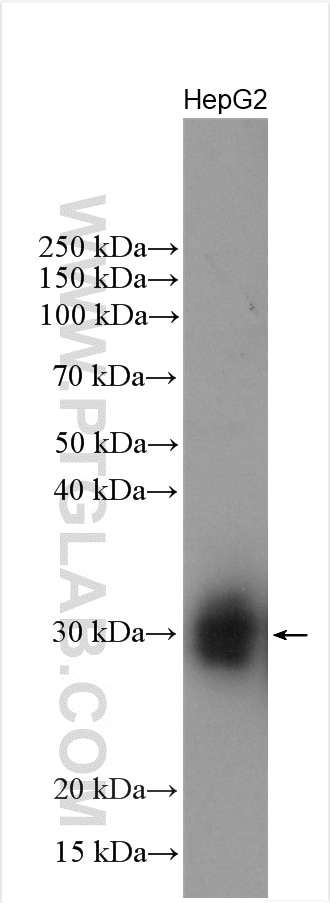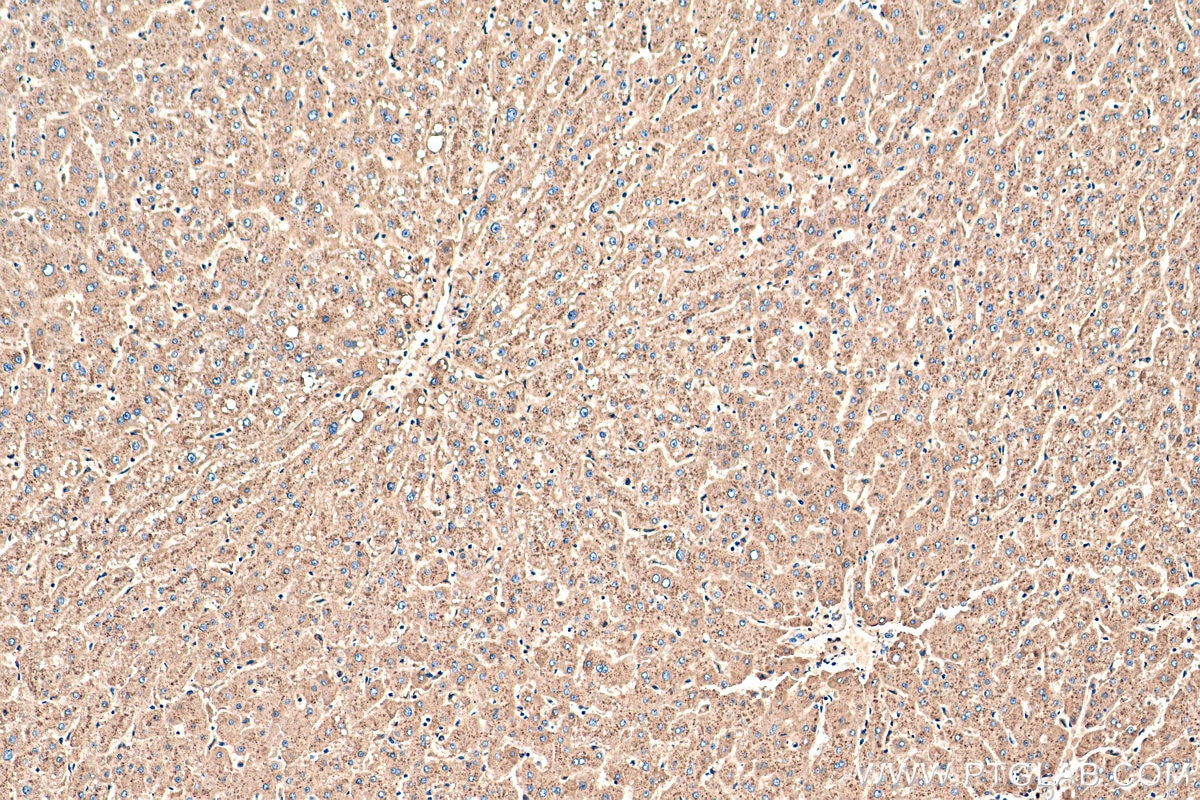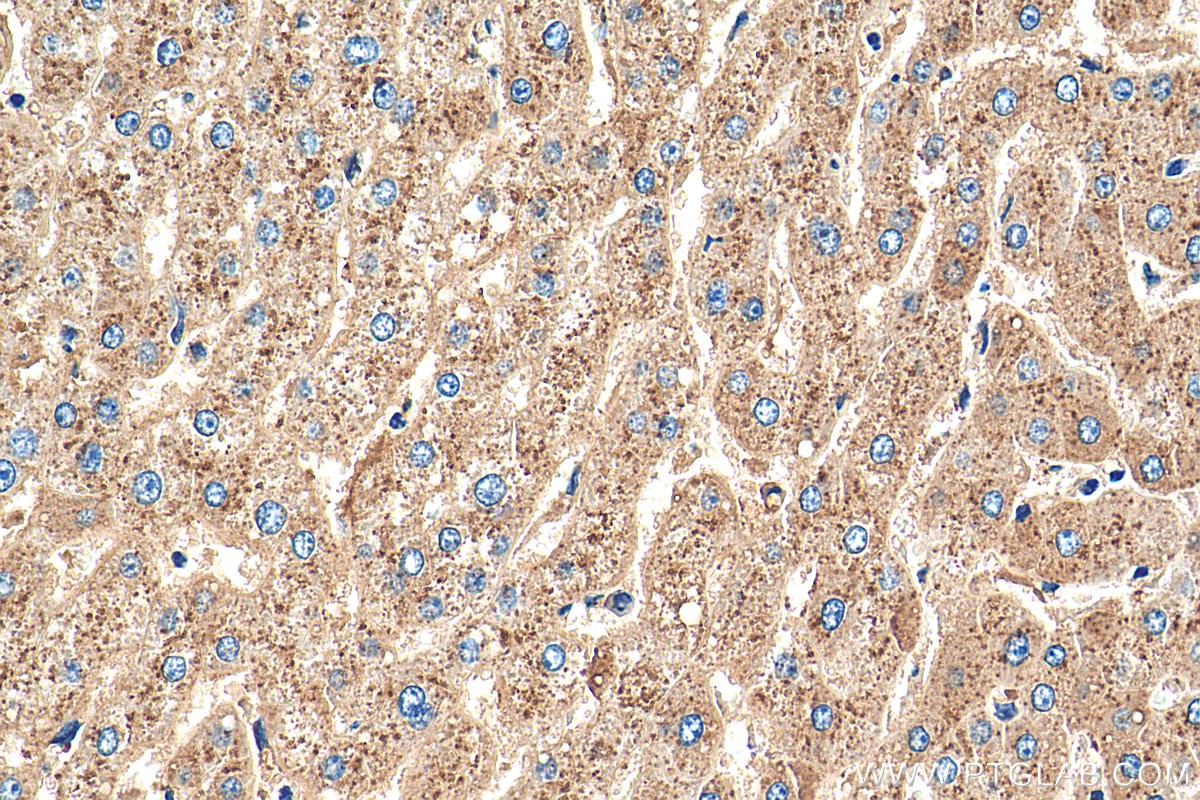- Phare
- Validé par KD/KO
Anticorps Polyclonal de lapin anti-APOD
APOD Polyclonal Antibody for WB, IHC, ELISA
Hôte / Isotype
Lapin / IgG
Réactivité testée
Humain
Applications
WB, IHC, ELISA
Conjugaison
Non conjugué
N° de cat : 10520-1-AP
Synonymes
Galerie de données de validation
Applications testées
| Résultats positifs en WB | tissu sérique humain (tissue serologique), cellules HepG2, plasma humain |
| Résultats positifs en IHC | tissu hépatique humain, il est suggéré de démasquer l'antigène avec un tampon de TE buffer pH 9.0; (*) À défaut, 'le démasquage de l'antigène peut être 'effectué avec un tampon citrate pH 6,0. |
Dilution recommandée
| Application | Dilution |
|---|---|
| Western Blot (WB) | WB : 1:500-1:1000 |
| Immunohistochimie (IHC) | IHC : 1:50-1:500 |
| It is recommended that this reagent should be titrated in each testing system to obtain optimal results. | |
| Sample-dependent, check data in validation data gallery | |
Applications publiées
| KD/KO | See 1 publications below |
| WB | See 3 publications below |
| IHC | See 4 publications below |
Informations sur le produit
10520-1-AP cible APOD dans les applications de WB, IHC, ELISA et montre une réactivité avec des échantillons Humain
| Réactivité | Humain |
| Réactivité citée | Humain |
| Hôte / Isotype | Lapin / IgG |
| Clonalité | Polyclonal |
| Type | Anticorps |
| Immunogène | APOD Protéine recombinante Ag0812 |
| Nom complet | apolipoprotein D |
| Masse moléculaire calculée | 33 kDa |
| Poids moléculaire observé | 21-33 kDa |
| Numéro d’acquisition GenBank | BC007402 |
| Symbole du gène | APOD |
| Identification du gène (NCBI) | 347 |
| Conjugaison | Non conjugué |
| Forme | Liquide |
| Méthode de purification | Purification par affinité contre l'antigène |
| Tampon de stockage | PBS avec azoture de sodium à 0,02 % et glycérol à 50 % pH 7,3 |
| Conditions de stockage | Stocker à -20°C. Stable pendant un an après l'expédition. L'aliquotage n'est pas nécessaire pour le stockage à -20oC Les 20ul contiennent 0,1% de BSA. |
Informations générales
Apolipoprotein D (ApoD) is a member of the lipocalin superfamily of ligand transporters, and has been implicated in the transport of small hydrophobic molecules. ApoD is also a component of plasma high-density lipoproteins (HDL). Alteration of ApoD expression has been linked to multiple neurological disorders, including Alzheimer's disease.
Protocole
| Product Specific Protocols | |
|---|---|
| WB protocol for APOD antibody 10520-1-AP | Download protocol |
| IHC protocol for APOD antibody 10520-1-AP | Download protocol |
| Standard Protocols | |
|---|---|
| Click here to view our Standard Protocols |
Publications
| Species | Application | Title |
|---|---|---|
Neuropathol Appl Neurobiol Apolipoprotein D: a potential biomarker for cerebral amyloid angiopathy. | ||
Clin Proteomics Integration of transcriptome and proteome profiles in placenta accreta reveals trophoblast over-migration as the underlying pathogenesis.
| ||
Biomarkers Apolipoprotein D as a novel marker in human end-stage heart failure: a preliminary study. | ||
Front Immunol A novel necroptosis-related gene index for predicting prognosis and a cold tumor immune microenvironment in stomach adenocarcinoma | ||
Comput Struct Biotechnol J Uncovering the potential of APOD as a biomarker in gastric cancer: A retrospective and multi-center study |





